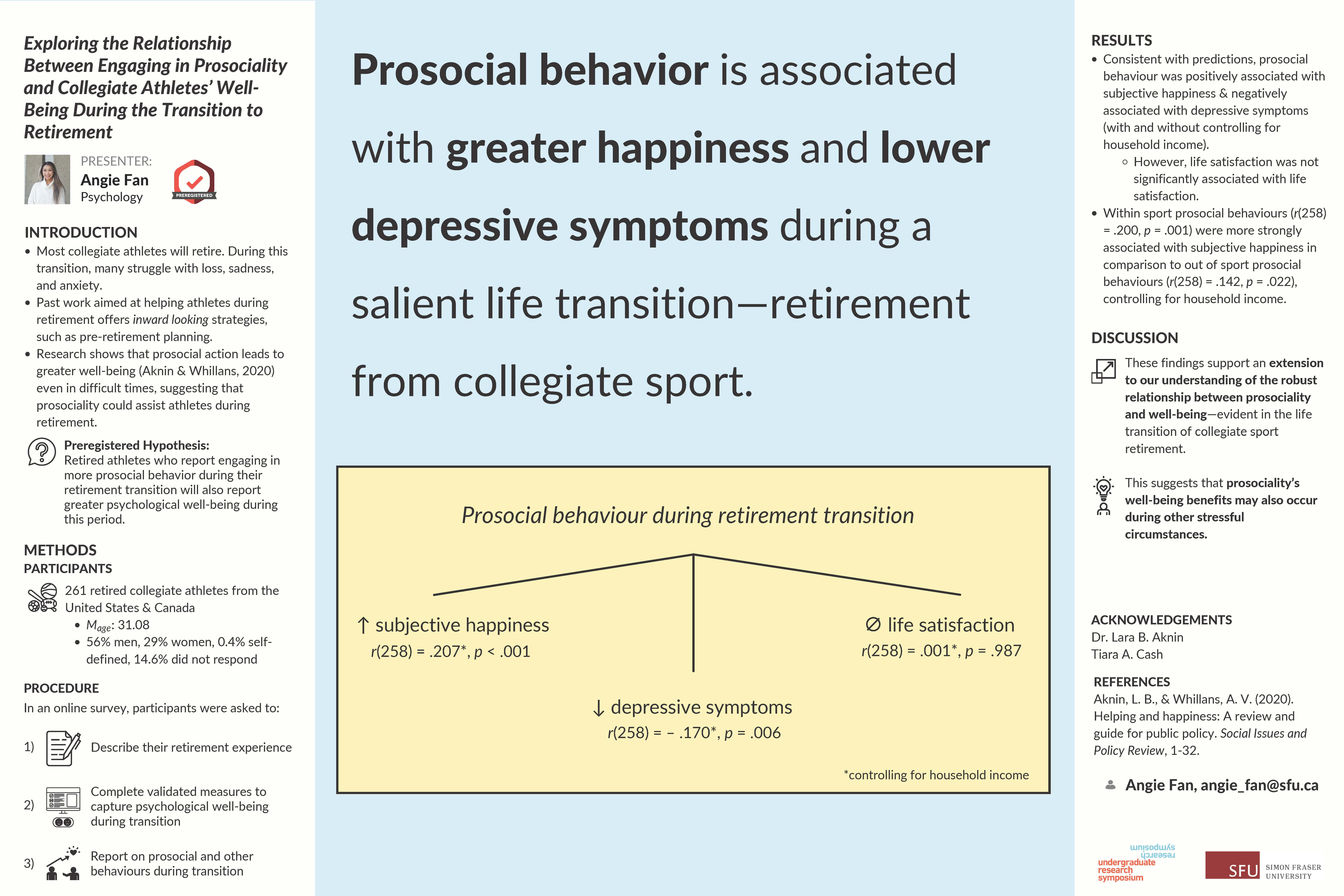Exploring the Impact of Engaging in Prosociality on Collegiate Athletes’ Well-Being During the Transition to Retirement
Main Article Content
Abstract
Most collegiate athletes will retire from their sport. Whether retirement is prompted by injury, graduation, or another cause, collegiate sport retirement is a major life transition that can involve feelings of loss, sadness, and anxiety. Most retirement interventions designed to assist athletes during transition focus attention inwards to oneself (e.g., pre-retirement planning) with mixed efficacy. Given this, we wondered whether focusing attention outward and on others could protect or promote well-being during retirement? This possibility is grounded in past research showing that prosocial action is causally linked to happiness. To investigate this question, we recruited 261 retired athletes from Canada and the United States to complete an online survey containing questions about their collegiate sport retirement. Specifically, participants described their retirement story, completed several validated measures of psychological well-being (happiness, life satisfaction, depression), and indicated whether they engaged in range of prosocial or control behaviours during their transition. Consistent with our pre-registered hypotheses, retired athletes who reported engaging in more prosocial behaviour in the year post-retirement also reported greater happiness and lower depression. Contrary to predictions, life satisfaction was not associated with prosocial behaviour. These findings suggest that prosociality may support well-being during challenging life transitions. I plan to present an in-depth analysis of the results and discuss limitations, implications, and next steps for this research.
Faculty Supervisor:
Dr. Lara Aknin, Department of Psychology, Simon Fraser University
Research Team Members:
Tiara A. Cash, Department of Psychology, Simon Fraser University
Article Details

This work is licensed under a Creative Commons Attribution-NonCommercial-NoDerivatives 4.0 International License.

